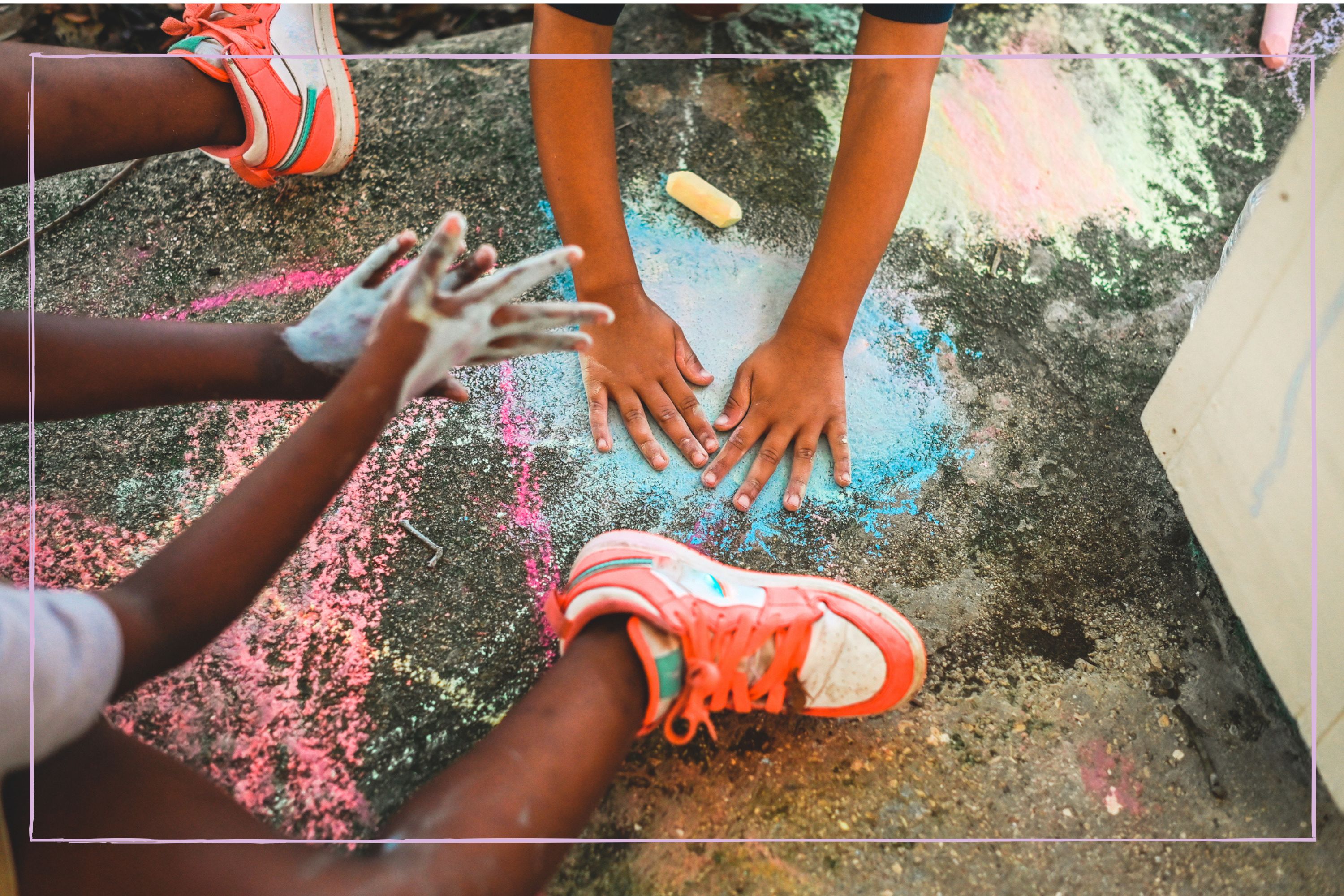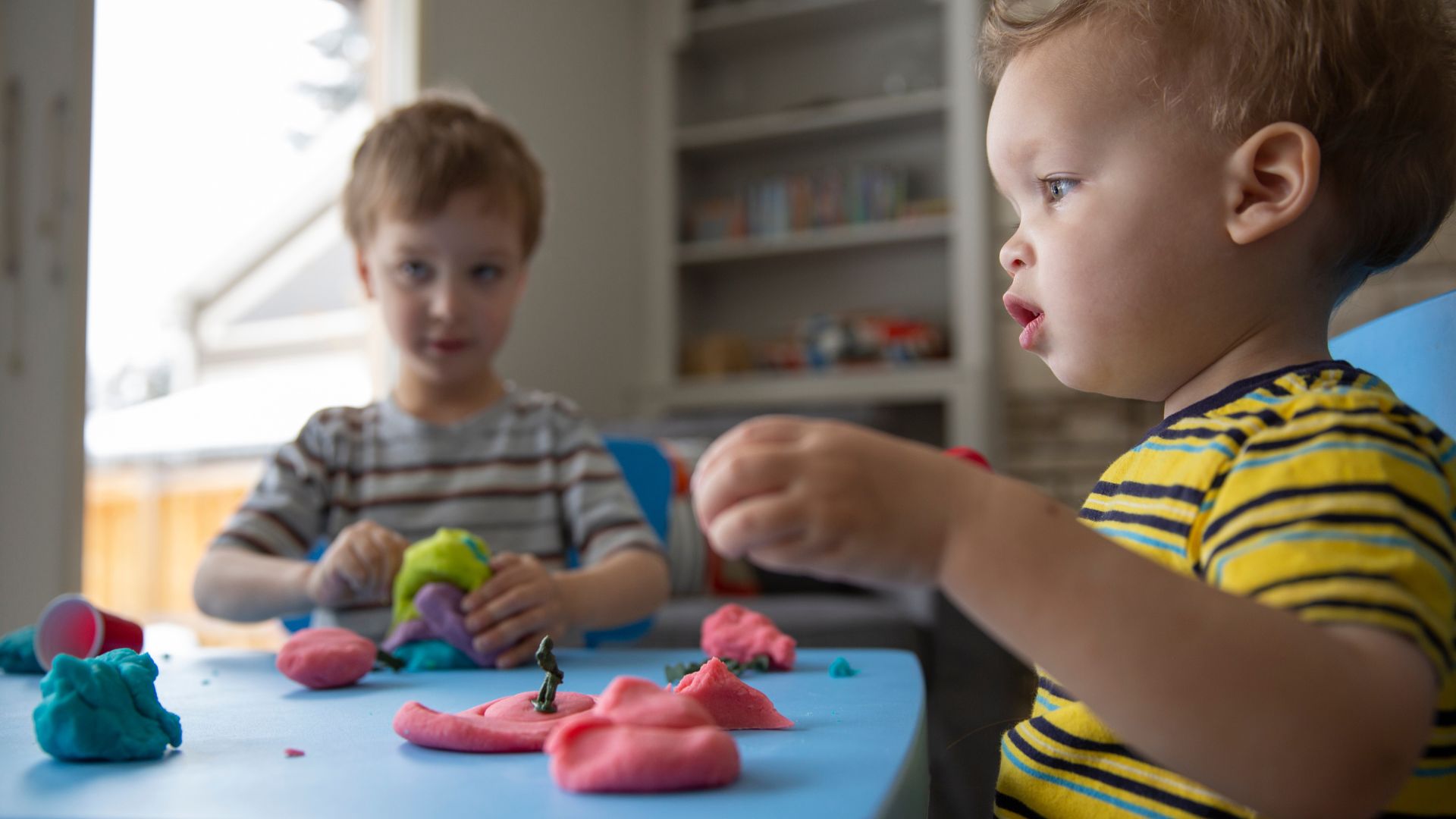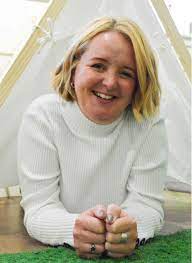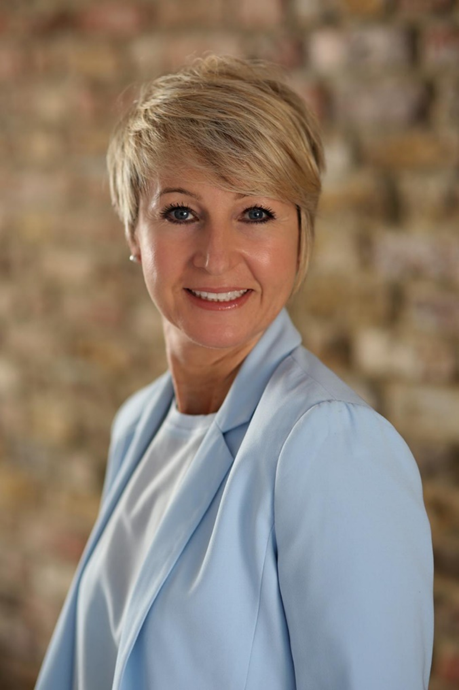Sensory play is more important than we may think - we ask the experts and here are their 12 benefits of stimulating activities
Sensory play is fun for all age groups


Dr Amanda Gummer
Sensory play encourages children to explore and understand the world they live in by engaging their major senses. We look at how to build it into your life.
Sensory play is beneficial for children of all ages, stimulating their senses of touch, sight, smell, sound and taste. Although largely synonymous with babies, in addition to sensory toys, everyday activities can become sensory adventures for older children - ordinary games, simple walks, or even a trip to the shops can become stimulating playgrounds for your child’s senses.
Many toys for boys and girls can be adapted into sensory experiments, while cheap outdoor toys prove that building a world of fun discovery doesn't have to cost the earth. To keep costs low, children can raid the cupboards and experiment with things you might already have at home such as shaving foam and cooked pasta. It's never too early to introduce sensory activities, and pushchair toys from day one can be an easy way to start.
Play expert Amanda Frolich says sensory play is not only fun and engaging but it also plays a crucial role in a child’s development. "It helps to stimulate brain development, enhances cognitive abilities, and develops fine motor skills. Sensory play can also improve social and emotional skills by encouraging communication, sharing, and cooperation," she explains.
This article will cover the top benefits of sensory play, with expert input to empower you to try it at home with kids of all ages.
Benefits of sensory play
There are nine benefits of sensory play, it supports your child’s mental and physical development and helps them build friendships and connections too. So in other words, the mess is worth it. Clair Turner, co-founder of My Playroom UK, says: “When you open up the world of sensory play you’re giving a child a wealth of skills that will enable them to complete more complex daily tasks. Exploring and learning this way helps children learn the difference between hard and soft, hot and cold, loud and quiet, rough and smooth, and many other senses.” In addition to this, lots of experts share key benefits of sensory play.
1. Develops fine motor skills
Parenting expert Kirsty Ketley says: “Sensory play is great for helping children strengthen their fine and gross motor skills, through manipulating dough, lifting, spooning, pouring, transferring.” These actions will help your child strengthen the smaller muscle groups and develop their coordination.
GoodtoKnow Newsletter
Parenting advice, hot topics, best buys and family finance tips delivered straight to your inbox.
The activities can be started as soon as your baby is sitting independently. You can fill a tub or tray with different textures and guide their hands through it and let them explore. High chair trays are also a good place to introduce some sensory play. Let them pick up and play with foods that have different textures, tastes, and smells. Just remember to never leave babies unattended with anything which could be a choking hazard.
Mum-of-one Tiffany told us about the success of the Ram sensory balls (£5.99, Amazon). "When our son started grabbing at everything in sight, we got him some coloured sensory balls. He could grip them easily, and start building his throwing skills! The bright colours attracted him, and they all felt different and really seemed to keep his attention."
2. Teaches cause and effect
This is a really important benefit of sensory play because it helps infants make sense of the world. By playing with sensory toys they will see how their actions have an impact. With a very young baby this could be shaking a toy which makes a noise. For an older child it could be popping a bubble with their finger or building a stack of blocks and then knocking it down.
Water play in the garden or in the bath is also a great way of learning cause and effect. You can use different jugs or cups to pour water from one to the other. Gentle splashing of warm water can also get a baby used to the sensation of it on their skin and faces.
Mum-of-three Michelle told us about the Twisty Droppers (£15.25, Learning Resources) that all of her children have enjoyed. "The droppers have been used as bath toys, and outside in the garden," Michelle said. She added "We put food colouring in some jars and used them to learn about colour mixing, and they were used in our first mini water fights."
3. Builds problem solving skills
Sally Jackson, founder of sustainable children's store Soren's House, tells us "Sensory play isn't just about following instructions – it's about figuring things out! Kids encounter new textures, temperatures, and materials, creating challenges that turn them into little problem-solving detectives.
Sally added "As they navigate the sensory world, kids learn to adapt and overcome obstacles. They figure out how to scoop up slippery rice, build towers that won't topple, and communicate their needs in a world of sensory experiences. This early problem-solving builds resilience and critical thinking skills they'll carry into everything they do."
Mum-of-two Jess told us the Noah's Ark Shape Sorter (£19.50, Early Learning Centre) was one of her daughter's favourite sensory toys. "My daughter sometimes struggled to get the right animal in the right place, but this was something we did together while she learned the basics of problem-solving. Once she'd mastered that, the Ark took on a new lease of life as she was able to draw around the animals, and she also used them to create imaginative stories."
4. Aids brain development
Child psychologist Dr Amanda Gummer, who has developed The Good Play Guide, says sensory play is beneficial because it contributes to the development of children’s brains and nervous systems. “Sensory play helps to build connections between neurons in the brain, which strengthens neural pathways and improves cognitive skills such as problem-solving, decision-making, and creativity. Additionally, sensory play can help toddlers to regulate their emotions and develop their social skills,” she explains. Mum-of-two Lucy, told us that both of her her boys loved playing with Kinetic Sand (£17.99, Smyths). "When the children got older and I looked for sensory play activities for them, a friend suggested Kinetic Sand. They loved it and came back to it again and again for many years. They worked together to make all sorts of creations."
5. Supports language development
Sensory play can be a great way for children to expand their vocabulary and learn how to express their emotions. Dr Gummer says children will learn new words and concepts as they play and interact with others. “Sensory play also encourages toddlers to use language to express their thoughts and feelings, as well as to communicate with others,” she says.
An easy-to-hold phonics board (£14.00, Argos) can provide a plethora of sensory stimulation, as well as increasing vocabulary. Children can learn about letters, words, numbers, and counting, with buttons for learning about cause and effect and motor skills development. As their language develops, so will their social and communication skills.

With textured items like slime and Play Doh, you can ask toddlers to describe how things feel - “Is it squishy or slimy or smooth?” Encourage the use of action words and descriptive words when asking questions. Sensory play can also develop children’s imaginations and they may start to make up scenarios and stories as they play.
The most important thing is to speak to your child while you’re playing. It might be a while before a baby says their first words but a newborn’s hearing is fully developed at birth. Talking to them about colours, shapes and textures will only help build on their language when they do start to talk.
6. Develops independent play and thinking
One thing that might make sensory play even more popular with parents is that children can enjoy it on their own. While it’s important to make sure they are playing in safe surroundings with no hazards, it’s something they can get stuck into independently. Keep a ‘treasure’ basket filled with toys such as instruments, scarves, stacking blocks, or squishy books for them to explore at home. They’ll be so busy you might even get to drink a hot cup of tea!
Sensory play also promotes independent thinking, even in very young children. Dr Gummer says: “Through sensory experiences, toddlers learn to make decisions, develop hypotheses, and test their ideas. This type of play also promotes creativity and imagination, as toddlers are free to explore their surroundings and come up with their ideas and solutions. “As toddlers engage in sensory play, they learn to become more self-directed and confident in their abilities, which supports independent play and thinking,” she adds.
7. Aids emotional development and calm feelings
Amanda Frohlich, who runs Amanda’s Action Club children’s classes, says sensory play can help children manage their feelings and emotions by improving their self-regulation and making them more aware of their own sensory needs. “Some children find sensory play comforting and quietening, which can be helpful for those who struggle with anxiety or sensory processing issues, it can focus a busy mind, and many resources reduce feelings of overwhelm.”
Soothing textures smells, and sounds can really settle a child if they struggle with anger, restlessness, or frustration. There may be a certain type of sensory play that they find helps them stay calm. Many educational settings now have sensory rooms where children can go for a break if they find the school environment noisy or overwhelming. Music, white noise, or sounds such as rain or the ocean can be helpful for children who feel overstimulated in loud situations.
Mum-of-two Lucy has a child with sensory and sleep issues - her son uses a Tornado Lamp (£11.23, Sensory Toy Warehouse) to calm down after school and get to sleep at night. Lucy said "My son was attached to listening to audiobooks at night to help him get to sleep, but they seemed to be stimulating him and keeping him awake. We tried a Tornado Lamp and he watches it now until he nods off. It's also good to have on when he's doing little bits of homework."
8. Supports children with additional needs or disabilities
Frohlich says sensory play can help children with ADHD, illness or disabilities. “Some sensory play activities, such as group activities with musical instruments, can provide opportunities for children with autism or ADHD to socialise with others in a safe and structured environment. I incorporate turn-taking and listening to each other, improving social skills, and promoting feelings of connection and belonging,” she says.
Kirsty Goddard is manager at Forget Me Not Children's Hospice in Huddersfield where they have a specialist sensory room with touch walls, bubble tubes and sensory walls. “We have toys that are activated by noise, so our kids who can’t say words can see an impact from clapping or shouting,” she says.
“We have a water bed that you can pump music through - allowing deaf kids to have an embodied experience of music and share in the music their family loves.” Goddard adds: “Everyone loves the sensory room, but for some of our kids it is like their base for most of their stay, helping them manage the ups and downs of life. It's a lovely place to calm down and in some cases helps with pain management.”
9. Builds essential skills for life
Sally Jackson said "Think of it as a gym for the brain! When sensory activities stimulate neural pathways, not only does cognitive development and information processing develop - skills for life are planted. As a developmental tool, sensory play lays the foundation for a lifetime of learning.
Mum-of-two Katy is a teacher and learned the benefits of sensory play during her teacher training. "I knew that when I had my own children, sensory play to build skills for life was going to be high on my list of things to try. I made a sensory kitchen from old pallets and got crockery from charity shops. My children played with it until it fell apart, that's how loved it was," she said.
10. It can benefit future academic achievement
Sally Jackson also offered her opinion on this, saying "The magic of sensory play extends far beyond playtime. From boosting memory and attention to refining motor skills, sensory play strengthens the foundation for future academic success. The joy of discovery in sensory play builds self-confidence and a positive attitude towards learning. Kids become curious, engaged, and empowered to explore the world around them in their classrooms and beyond."
Mum-of-two Jen told us about a quick and cheap maths teaching exercise she does with her children. "I bought some wooden numbers (£6.49, Amazon) and froze them in water in ice cube trays. I then got the children to sort them into the right order before the cubes melted - it got their maths skills going!
11. Promotes spatial awareness
Educational Psychologist Dr Patricia Britto told us "Sensory play helps children learn to engage with the world around them by using their senses. A sensory-rich environment can boost cognitive, emotional, physical and communication development in children and young people as their senses fully develop. As this promotes awareness of their position in the space that surrounds them, their visual-spatial skills increase."
Exploring the physical world around them can be carried out by stacking and rearranging objects, and filling and emptying containers. Discovering the relationship between their body and what is in their nearby personal space, increases their understanding about how to move safely within their environment.
12. Sensory play is fun!
The most important benefit of sensory play is that it’s fun! Children will be completely unaware of all of the good it’s doing for their brains and motor skills and will just be enjoying themselves. There are endless ways of incorporating sensory play into your day and the variety of activities is endless. This means children are unlikely to get bored easily but will also start to learn about what they like doing best.
Sensory play is also a lovely way of bonding with your child and for them to develop their relationships with their siblings and friends. Mum-of-three Corinne told us her children had all-year-round fun with an Active World Tray (£15.99, Sensory Education).
She said "It was such a great idea, and useful all the time. In the summer it was filled with water for water play, and in the winter the kids filled it with mud. It then became everything from a bug garden to a mud kitchen."
Our panel of experts

Dr. Patricia Britto is a qualified Educational Psychologist (HCPC Registered) and a mother with practical and research experience. Her qualifications include a Doctorate in Professional Educational, Child and Adolescent Psychology (DEdPsy) from UCL, Institute of Education, an MSc in Mental Health in Learning Disabilities and a BSc in Psychology. Dr Patricia works Independently at the prestigious Harley Street and within Local Authorities Educational Psychology Services to promote children and young people’s (age 0-25) learning and social, emotional and mental well-being. Dr. Patricia offers families, communities, and educational settings support through consultation, individual psychological assessments suitable for children and young people, and systemic work (e.g., training, workshops and organisational psychology support).

Established in 2016, Soren's House has been on a mission to introduce exquisite Scandinavian-inspired, design-led children's products to the UK. With a commitment to natural, organic, and eco-friendly children's products, Founder Sally Jackson aims to provide toys, clothes and décor that align with her vision of creating a simple and enchanting sensory childhood experience.

Dr Amanda Gummer is a child development expert and founder of The Good Play Guide. Created to provide an independent, expert accreditation service for children’s products, The Guide provides a trusted resource for parents and gift-givers to find truly Good Toys, Apps and much more.
Amanda has a PhD in Neuropsychology, the Postgraduate Certificate in Higher Education and over 20 years’ experience working with children and families. Having worked in children’s industries for many years, Amanda is now widely considered as the UK’s go-to expert on play, toys and child development.

Kirsty Ketley is a qualified Early Years and parenting specialist with a wealth of knowledge and experience from over 25 years of working with children from birth to the teenage years.She became a mum in 2013 to daughter, Ella, and again in 2016 to son Leo, and uses her vast experience as a professional and personal experience of being a parent, to offer a parent consultation service giving support, reassurance, help and advice on all areas of parenting.As a mum herself, Kirsty understands how hard parenting can be and her advice is completely non-judgemental, friendly and practical.
Clair co-founded My Playroom UK, with colleague Fiona. They design & print removable furniture & wall stickers using child friendly materials in the UK. Their stickers & products are enjoyed by families, schools and childcare settings around the world.

Amanda Frolich is an award-winning celebrity children’s entertainer and CEO of Amanda’s Action Club, an innovative and fun, physical development concept teaching preschool children how to be healthy and active from an early age.
Having spent 30 years working within the sport, leisure, fitness, and early years sectors, she was invited by the Children’s Activity Association to become the Children’s First Champion in Parliament, encouraging policymakers to put children first at the heart of all decision-making.
Her global TV series, which features an animated Action Amanda on different missions to promote health and activity is in the early stages of production and helping Amanda achieve her life-long impact vision.
Sensory play Instagram accounts to follow
@theworkspaceforchildren - This Instagram account is fronted by Lizzie Assa, MsED, a Parenting Strategist and Independent Play Expert. Lizzie is also Head of Play and Development at Lalo, a site for creative baby and toddler essentials. Expect advice on play planning, and a plethora of sensory play ideas for kids of all ages.
A post shared by Lizzie Assa, MsED| Play and Parenting
A photo posted by theworkspaceforchildren on
@where_learning_meets_play - Jen is at the helm of @where_learning_meets_play, and knows her stuff when it comes to sensory play, as a qualified teacher and mother-of-six. Her beautiful and calming feed contains an abundance of sensory play ideas, organisation and life hacks.
A post shared by Jen~Where Learning Meets Play
A photo posted by where_learning_meets_play on
@littlepinelearners - Tara Rondinelli is the teacher behind @littlepinelearners, an account designed to encourage outdoor sensory play. Tara believes in a nature based curriculum and providing simple and seasonal ideas for parents to explore with their children.
A post shared by Tara Rondinelli
A photo posted by littlepinelearners on
@kidssensoryplay - Antonia of @kidssensoryplay is a mother-of-two based in New York. She shares sensory activities, toy rotations, fun themes and the best ways to learn through sensory play.
A post shared by Antonia | Kids Sensory Play
A photo posted by kidssensoryplay on
Check out these sensory glitter jars for an activity you can do with your small people. Meanwhile, our tuff tray ideas will keep kids entertained for hours. Baby gyms and play mats are a good place to start sensory activities with babies, and we have the lowdown on the best ones around.

Kat has been a digital journalist for over 15 years after starting her career at Sky News where she covered everything from terror attacks to royal babies and celebrity deaths. She has been working freelance for the last five years and regularly contributes to UK publications including Stylist, ES Best, Woman&Home, Metro and more.
- Dr Amanda GummerChild development expert